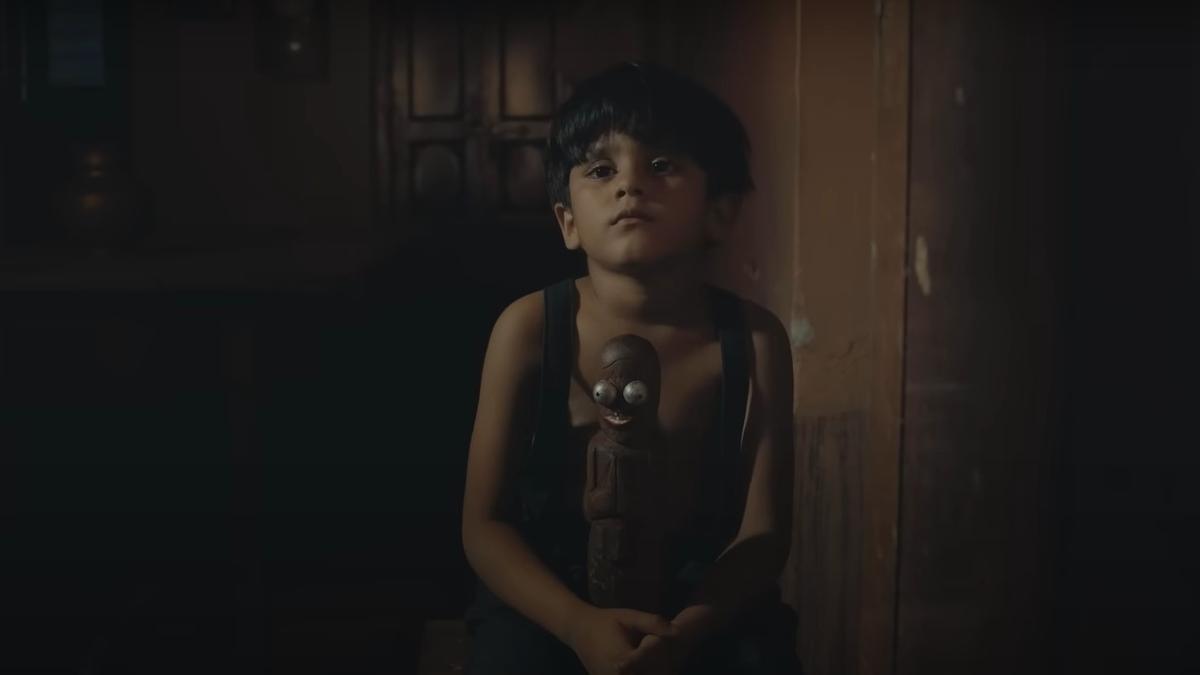
‘Tholumadan’, the Malayalam horror mini series, discusses mental health through a folklore
The Hindu
Mini series Tholumadan blends folklore with emotional trauma post-war
When little Appu pleads with his mother to tell a bedtime story, she scares him saying that if he does not sleep, Tholumadan would take him away. Madan, an eerie creature, apparently, hides in the dark, kidnaps men, kills them and wears their skin to live as human beings. According to her, many such Tholumadans live around as men.
Appu, who has been waiting for his father, a soldier, to return from the battlefront believes the tale. But when his father arrives home, all battered, bruised and emotionally shattered, Appu wonders if his father is for real or a Tholumadan.
The three-part series, Tholumadan, blends folklore with the emotional trauma of a person after the war, the Indo-China war of 1962 in this case.
Richy KS, writer, scriptwriter and director of the work, says, “Tholumadan’s conquests is one among the many bed-time stories that I heard from my late mother, Renuka. She loved making up stories and even claimed to have seen a kuttichathan (a goblin in folklore). Perhaps that’s why I became a storyteller,” says Richy.
The series smartly weaves the settings of a folklore with a soldier’s mental condition. His appearance, outbursts and breakdowns upset and scare the son, who ends up imagining his father to be Tholumadan. “We don’t usually discuss men’s mental health. Here, the soldier, is broken from within and his emotional outbursts affect the boy and the whole family. That vulnerable situation is placed against a folklore, with horror elements thrown in,” Richy explains.
Tholumadan leaves behind several pertinent questions. For example, when darkness creeps into our mind and surroundings, do we become Tholumadans?
Richy says that in some parts of Kerala, Tholumadan or Chappila Bhootham is a character associated with Thiruvathira festival in the Malayalam month of Dhanu (December-January). “The character visits houses wearing a mask with dry leaves [usually plantain leaves] tied all over the body and would sing songs. There are different stories associated with this figure,” says Richy.

A vacuum cleaner haunted by a ghost is the kind of one-liner which can draw in a festival audience looking for a little light-hearted fun to fill the time slots available between the “heavier” films which require much closer attention. A useful ghost, the debut feature of Thai filmmaker Ratchapoom Boonbunchachoke being screened in the world cinema category at the 30th International Film Festival of Kerala (IFFK), even appears so in the initial hour. Until, the film becomes something more, with strong undercurrents of Thailand’s contemporary political history.

Sustainability is not an add-on, but stamped firmly into the process: every piece is biodegradable, waste-free and unembellished, free from glitter or beads. “Products should be sustainable and biodegradable so that our planet is not harmed,” says Anu Elizabeth Alexander, a student of Sishya, Adyar. At a recent exhibition, the stars she made sold the fastest, followed by the small diamonds. “I would like people to know about the process, how it is created, and that it is sustainable,” says Anu. Infanta Leon from Kotturpuram developed an interest in crochet as a teenager. It was a hobbyhorse that evolved into a steed that would help her embark on a journey of identity-shaping creative engagement. She started making Christmas-themed decor two years ago, spurred by a desire to craft safe, eco-friendly toys for children. “With a toddler at home, and my elder child sensitive to synthetic materials, I wanted to create items that were gentle, durable and tactile,” she explains. Her earliest creations were small amigurumi toys which gradually evolved into ornaments that could adorn Christmas trees with warmth and charm.











